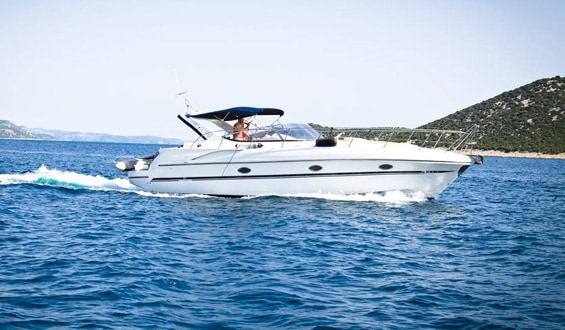The Costs of Owning a Boat and Insuring It
As a young person, you probably want to be budget-conscious. However, if you are in a position where you want to treat yourself to a little gift, you might decide to buy a new boat. Still, though you might feel secure making the investment, you might not realize exactly the cost you face in the future. Boat ownership is about more than just financing and sailing off into the sunset. It’s about insurance, maintenance costs, and other fees. Here are just a few of those you might expect.
Purchasing the Boat
Buying your first boat might seem like a big step. That’s because it is. You have to put some consideration into setting sail.
Just like a car, a boat is a motor vehicle. It’s also an expensive motor vehicle. Therefore, you have to be ready to pay for it. So, what are some of the costs you might expect?
When it comes to purchasing the boat, you’ll probably face a few scenarios. Usually, it is up to you to decide which one is in your best interest.
In most cases, people finance—take out a loan to buy—their boats. Often, you will finance the boat through the sales company. However, you might have the option to refinance the vessel’s loan later, to get more favorable payments and interests.
Some people do purchase the boats outright, and if this is your best option, it might save you money in interest payments. Keep in mind, if you choose to finance the boat, you must make a regular payment on the vessel.
Your boat’s salesperson can work with you to negotiate a price, payment plan, and a down payment on the vessel. You often have room to negotiate. However, your goal should be to get a favorable payment that can fit within your household’s budget. If you can’t afford it, it might be best to wait until later to buy.
Insuring Your Vessel
Upon deciding to buy the boat, you usually have to consider whether to buy insurance for the vessel. In most cases, insurance is a critical investment for any boat operator.
Think of boat insurance the same way you do car insurance. Your policy will pay in case the vessel becomes the victim of unavoidable accidents. Because the boat, like a car, is a motor vehicle, the operating (and financial) risks attached to these vessels are often high. You will benefit from buying coverage because it will help you protect your financial future.
Some of the policy items you might buy are:
· Liability insurance: This coverage will insure you if you cause harm to another boater because you are at fault for an accident. Policies might pay for the affected parties’ property damage and bodily injuries, along with other costs.
· Physical damage coverage: Damage or loss to your own boat will have coverage under this policy. For example, damage from collisions, fires, vandalism, theft and other losses might have coverage.
· Medical payments insurance: Should you or your pets get hurt in a boating wreck, then you might use this coverage to pay for your medical costs after your health insurance pays.
· Uninsured/underinsured boater coverage: Other boaters might not have liability insurance. However, if you have this coverage on your vessel, you can get assistance paying for the damage someone else causes, and that wasn’t your fault.
· Pollution/salvage coverage: Should your boat sink, or should a fuel spill occur, you might have to pay for the salvage or environmental cleanup. This coverage can help you do so.
Depending on your insurer of choice, you can often get other policy perks.
However, regardless of the policy you choose, you will have to pay for it. This is your premium cost, and it will vary based on multiple factors, such as the boat’s value and the amount of coverage you buy. A $20,000 boat might only cost around $300/year. On the other hand, a $100,000 boat might cost you upwards of $1,500/year.
Your agent is more than willing to work with you to ensure you get appropriate boat insurance. Keep in mind, in some cases, you might have to insure the boat, such as if you have it financed. However, even if you have no requirement for coverage, you can benefit from buying a policy. It’s there to provide you with financial help when you need it.
Other Fees You Might Face
Boating regulations vary widely from state to state. They also might vary based on how, when, or where you plan to use the vessel. These might come with associated fees.
In many cases, you must register the boat like you would a car. This will likely involve a registration fee. You might also have to obtain a boating license or pass a boating safety course to be able to operate the boat. These will also often have costs attached.
Keep in mind, other fees, like maintenance costs and marina/docking fees, might apply throughout the lifetime of your boat. Therefore, you should always plan ahead in case you will face these costs. The more you know ahead of time, the more you will be able to enjoy the vessel.
Contact us for a free quote.

